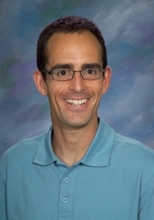Reuven Gordon

Position
Contact
Credentials
Ph.D (Cambridge), P.Eng
Area of expertise
Development of optical biosensors for the early detection of cancers and for drug discovery
Research interests
- Optics for detection, spectroscopy and biosensors
- Optical manipulation and trapping using nanostructured metals
- The nanostructuring of metals to achieve enhanced light-matter interaction, down to the single molecule level
- Enhanced photovoltaics to make solar energy conversion more efficient
Expertise profile
When it comes to his research, engineer Dr. Reuven Gordon thinks big - but on a very small scale.
Dr. Gordon is a rising star in the emerging field of nanoplasmonics, which involves the interaction of light with metal surfaces at scales as tiny as atoms and molecules.
Advances by Dr. Gordon, who is the Canada Research Chair in Nanoplasmonics, are leading to the development of sensors for the early detection of cancers, new tools to study viral infection and more efficient solar devices.
Under a microscope, human cells can be seen with the naked eye. However, viruses or cancer markers are invisible because they are much smaller than the wavelength of light. To see them, light has to be squeezed down to the nanometre - equal to one billionth of a metre.
Dr. Gordon is working with industry on the use of light to reliably and predictably detect biomarkers of interest in the body. Biomarkers are proteins produced by a disease such as cancer that could alert clinicians that a tumour is forming. This novel approach is leading the way to increased sensitivity and can be used cost effectively in early cancer detection.
In another research project, Dr. Gordon and his team developed and then improved upon a new method to gently trap, unfold, manipulate and study tiny, active objects as miniscule as viruses and proteins without inflicting any damage.
By being able to hold onto single molecules, Dr. Gordon can study how a single virus infects or how proteins bind together.
In the classroom, Dr. Gordon is experimenting with videotaped lectures, hoping to continue to engage students in an increasingly digital world. He considers the role of teacher to be more about showing how to interface with all the information there is out there, rather than simply relaying facts and figures.
